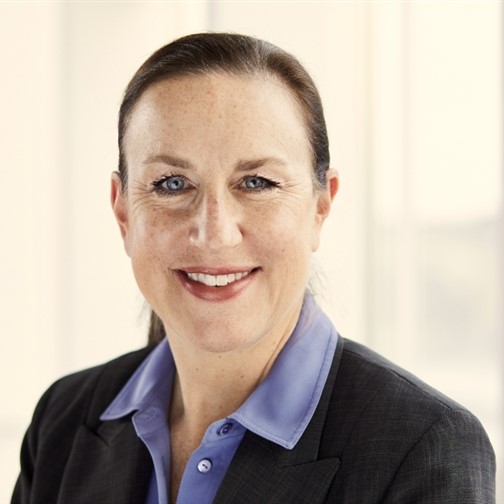Coca-Cola HBC’s Group Talent Director and CEMS board member, Audrey Clegg, reflects on networking lessons from the pandemic and explores how large corporates can hardwire networking opportunities in their digital structures
‘I was a headstrong child,’ says Coca-Cola HBC’s Group Talent Director, Audrey Clegg with a smile. ‘I got that from my father. But fortunately my mother was emotionally intelligent. She knew if I wanted to do something, I’d really go for it. And if I didn’t… we’d probably end up fighting.’
That simple lesson has been at the core of Audrey’s learning, development and networking philosophy ever since: let people drive their own careers, give them the opportunities and experiences they need to explore what they love to do and encourage them to talk about it.
Networking isn’t a race
‘Networking takes a lot of energy so you need some fuel,’ says Audrey, who is also a board member at CEMS (the Global Alliance in Management Education). ‘If you’re doing what you enjoy, then, you’re getting free refills.
‘You don’t set off on a long journey – possibly the longest journey of your life – without planning. It’s the same with growing a network. You plot where you want to go carefully, who you need help from to get you there and then check in regularly to make sure you’re on track.’
Planning and strategy is even more important in the virtual world, Audrey believes: ‘It’s unbelievably easy to get side-tracked when you’re online. Follow a signpost on a little detour and you could be gone for hours. So decide how long you want for a particular task – checking your LinkedIn feed, for example – and then set a timer on your phone.’
Hardwired networking and an internal growth engine
Some institutions leave networking to individuals but others seek to help their people do it more effectively. Last year, Audrey and the Coca-Cola HBC Talent Team launched what they call their ‘Opportunity Marketplace’. It connects business demands, big and small, with people who can meet them and gain skills and visibility at the same time.
Alongside international collaboration and maximising employee skillsets, a core component of the initiative is providing a digital platform for managers to post assignments. Employees complete a profile and are alerted when relevant opportunities arise.
So far, around 1,500 people have applied to more than 300 projects through the platform, of which 92% are already completed already – with an estimated 15K person-hours saved.
‘As with all digital change, you need behaviour change,’ observes Audrey. ‘But we had a great team who got the tech right. The benefits were clear so people took to posting fast.’
Examples include: programmers wanted for an initiative that automatically tracks hardware assets across the group; bartenders with a talent for social media to boost Coca-Cola HBC’s new spirits categories; recycling experts to design a collection scheme for aluminium capsules used in Costa Coffee outlets; marketeers to keep up to date on promotion strategies; and learning specialists to share best practice leadership behaviours.
Among Coca-Cola HBC’s 35,000 people in 28 countries, the chance encounters that create new ideas or the foundations for future collaborations can be hard to come by, especially in recent times. But light-hearted postings help to form new relationships and opportunities. For example, Brand Ambassador, Motunrayo Abiona in Nigeria, posted for a DJ for a virtual party and found Talent Lead Peter Vaszondi in Hungary. ‘He rocked the house,’ says Audrey.
The network effect
As the Opportunity Marketplace is a genuine network, the opportunities flow both ways. A number of Coca-Cola HBC leaders are using it to crowdsource insights they need when they take on new roles.
Maria Anargyrou Nikolic, for example, moved back to her native Greece to become Country Manager after 10 years working in other markets for Coca-Cola HBC. Longing to know how culture and customers had changed in her absence, she posted for help and found mentors to brief and guide her.
‘We’re seeing many similar short-term opportunities posted for recent graduates on the platform,’ says Audrey. ‘So even if you don’t get on to one of our graduate programmes, there are lots of ways to vary your experience and build your network in an entry-level or early career job. And we have plenty of them – today, for example, there are around 150 such roles in our network.’
In conclusion, then, there are ways to max your network, even in a Covid-19 world. But as with beating the virus, the most successful solution is a combination of humanity and science, according to Audrey.
‘Be warm, treat people as you’d like to be treated but stay focused and use the data. Plus, always ask prospective employers how they can help you build your network. Any organisation of reasonable size ought to have some good tools and platforms in place. If not, keep looking. It’s a key ingredient for a successful future.’

Audrey Clegg is Coca-Cola HBC’s Group Talent Director, where she leads its mission to get the right people, in the right roles, at the right time and grow the business. She is on the boards of CEMS (the Global Alliance in Management Education), Esade Business School and the Vedica Scholars Programme in India.




























